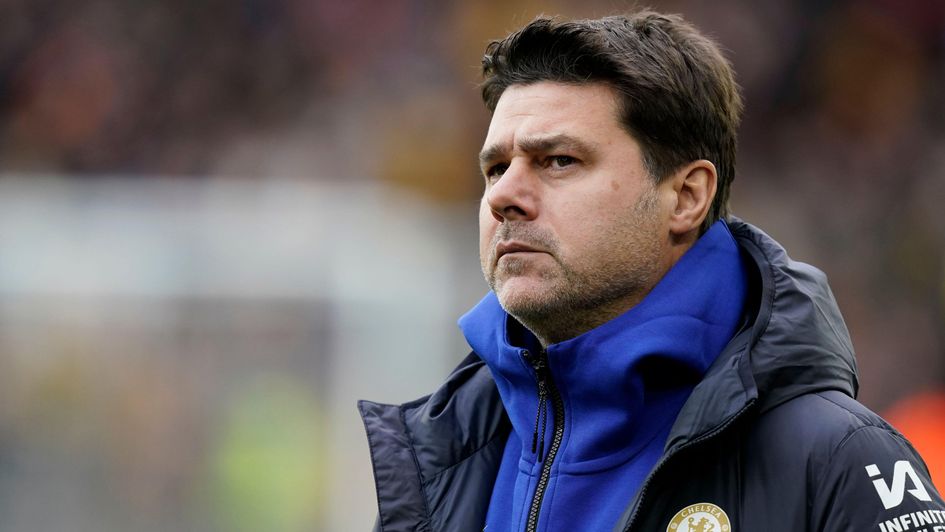The first 18 months under Todd Boehly have been worse than anybody could possibly have imagined.
One billion pounds spent on transfers alone spread over the next eight long years, two managers sacked, and 66 points from 55 Premier League matches.
Since Boehly took charge, Chelsea have spent more than twice as much as any other club in the world and yet their owner is staring down the barrel of a record that reads: two years, two bottom-half finishes, zero trophies. Mismanagement on this scale is scarcely believable.
It betrays a catastrophic absence of football knowledge on the part of an owner who brands reckless accounting tricks as financial loopholes and who mistakes a volatile transfer market for an NBA draft.
Spreading exorbitant costs on recruitment over eight years isn’t a cool life hack, it’s just kicking the can down the road. Spending big on your ‘first picks’ doesn’t mean winning the transfer window because, unlike US sports, there is no ranking system to help determine where to focus your energy.
Chelsea, paying off debts for the current crop until 2030, will be severely restricted in their spending for the best part of the next decade.
Their only hope is that the squad Boehly built will grow together into a title-winning force.
And he might just have got lucky...
Try a little patience
Mauricio Pochettino’s appointment was Chelsea’s most important of the 21st century and why he needs patience of the sort few owners show; of the sort Graham Potter and Thomas Tuchel were not given.
Pochettino was the right person for the job and, a couple of duds aside, Chelsea have spent well.
All they need is a little time.
Underlying data is encouraging
Opta’s model of ‘expected points’ has Chelsea (29.89) fifth in the table and just five short of Manchester City at the top (34.82). That won’t be particularly surprising to anyone who has followed Chelsea closely this season and paid attention to what is happening tactically between the two boxes.
Pochettino is a Marcelo Bielsa disciple who encourages hard pressing from the front, constant high-octane positional rotation, and vertical passing rather than the calmer triangles we see at Man City.
It’s important to acknowledge those broad tactical principles, because the desire to burst forward in straight lines and defend with manic energy means that, until the system clicks, it will seem like total chaos.
In other words, Chelsea aren’t as dishevelled as they look. They have the third-highest xG (33.76) and have allowed the sixth-fewest shots (206).
They are top of the charts for through-balls played (54); fourth for both successful take-ons (170) and progressive carries (407); and fifth for both 10+ open-play passing sequences (273) and direct attacks (38).
Chelsea need to take their chances
By pretty much every measure that matters for Pochettino’s tactical plans (aside from their actual points tally, of course) Chelsea are in the top five. The reason they aren’t actually anywhere near the Champions League places is simple: they are missing far too many chances.
Only Manchester United have underscored against their xG by a higher amount than Chelsea’s 6.3 and Pochettino has two of the Premier League’s top-five most under-performing players in Nicolas Jackson (-2.8) and Enzo Fernandez (-2.8).
The issue is particularly acute when Chelsea are faced with a low block; when opponents sit deep and look to frustrate Pochettino’s side, denying them the space they crave to play their Bielsa-esque transitional football.
Chelsea have held 69% or more possession in five matches this season and have lost four of them.
Christopher Nkunku’s return has been cited as a likely point of revival and certainly he should make Chelsea more proficient, having scored 16 and 20 goals in his last two Bundesliga seasons.
But what Pochettino really needs is for his full-backs to return.
Full-back fitness fundamental
At Tottenham, full-backs Danny Rose and Kyle Walker were essential to what Pochettino built, providing all the attacking width and, via long Bielsa-esque switches, stretching a deep block out of shape for a driving run to the byline.
Reece James and Ben Chilwell have barely played together since the latter’s arrival three years ago, but if Chelsea can get them back in January the Pochettino project will suddenly kick into a new gear.
What’s more, the imminent return of Romeo Lavia is an added bonus, giving Chelsea the option of rotating in central midfield, an area coming together nicely but struggling with the workload.
This might seem like a preposterously optimistic view of Chelsea’s immediate future, especially given how poor they were in recent defeats to Manchester United, Newcastle and Everton.
Indeed, critics can fairly point to the fact that Chelsea’s six wins in 2023/24 amount to beating nine-man Spurs, winning 3-2 against Brighton despite being outshot 18-8, seeing off Fulham with 44% possession and dispatching the three promoted clubs.
But look a little harder and things are happening.
An unparalleled first year of failure under Boehly was always going to restrict Pochettino to a slow start and yet there is hope for Chelsea supporters - unless of course the owner's treatment of previous managers is anything to go by.
And somebody will have to take the fall if this goes on much longer. Billionaires rarely blame themselves when things go wrong.
- All stats correct ahead of GW18 of Premier League action
More from Sporting Life
Safer gambling
We are committed in our support of safer gambling. Recommended bets are advised to over-18s and we strongly encourage readers to wager only what they can afford to lose.
If you are concerned about your gambling, please call the National Gambling Helpline / GamCare on 0808 8020 133.
Further support and information can be found at begambleaware.org and gamblingtherapy.org.
